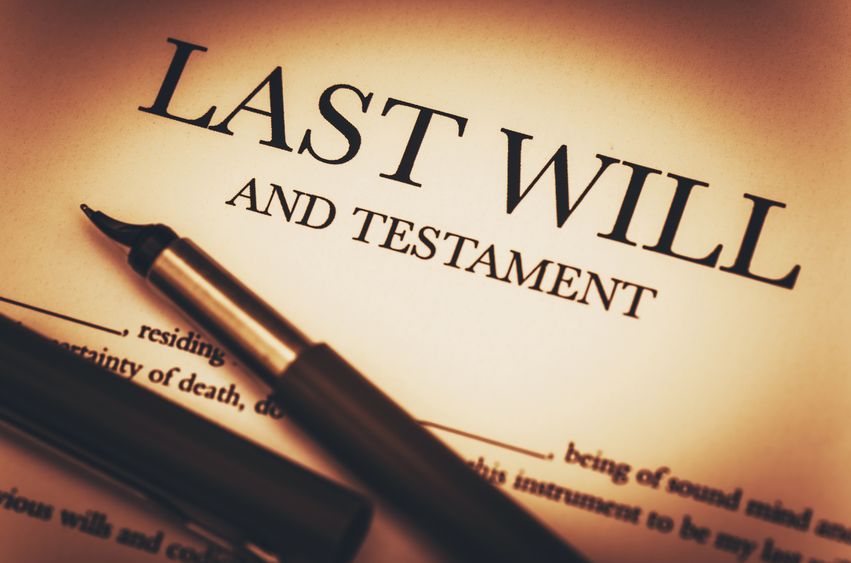 You might be asking yourself: Do I really need a will? This is especially common when people are young or just starting a career or a family. People are busier than ever, and going through the process of writing a will can seem unnecessarily stressful or like a waste of time.
You might be asking yourself: Do I really need a will? This is especially common when people are young or just starting a career or a family. People are busier than ever, and going through the process of writing a will can seem unnecessarily stressful or like a waste of time.
Many people avoid finalizing a will because it can be uncomfortable to talk about after-death arrangements and expectations. But having a will and making plans for your estate are all part of a crucial conversation that everyone needs to have eventually with their loved ones. Here’s why:
A will ensures that your decisions can be implemented if you’re not around. Having a will means YOU can decide how your estate (including real estate, belongings, bank accounts and more) is handled or distributed. It’s a legal document that allows you to outline what you want to happen and helps minimize the risk of family disagreements over the estate.
The designation of child care and guardianship for minor children is established with a will. Without a will outlining your wishes about guardianship, a court can step in and decide who will be put in charge of their care. A will allows you to make an informed decision about who can and should become guardian for your children. It also keeps anyone who you don’t want involved out of the picture.
A will prevents a long probate process. Probate refers to the process of courts administering the estate after death. The courts will direct who receives what and who needs to do what. For estates with wills, the probate court process is a more formal procedure of sharing the will’s direction. For estates that do not have the direction of a will, the process can be very delayed and cause additional stress to family and anyone else involved.
Estate taxes can be reduced by establishing a will. Estates are subject to taxes in most cases. A will can reduce the amount of taxes that have to be paid from the estate by directing assets to be given to family or charities, reducing the overall value of your estate and lessening the tax burden.
A will defines who will execute your estate – meaning who will be put in charge of making sure the will’s direction is carried out. In practice, this is someone who will handle paying off existing debt from existing assets, cancelling credit cards and other accounts, and even arranging pick up of belongings that the will says should be donated or given away. This is an important part of executing your will, and this role should be assigned to someone who is honest and organized.
A will allows for disinheritance. With a will, you can outline who shouldn’t be allowed any stake in your estate. Without a will, for instance, an ex-spouse who still co-parents children may be able to legally request assets from your estate.
The direction of donations can be made with a will. Many people want to make sure that their values and interests are represented after their death. Meaningful contributions to charities and non-profit groups can help this happen and make sure your generosity goes to the right people and places. Plus, gifts up to a certain amount are excluded from estate taxes, so you can potentially reduce the taxes that come out of the estate that your heirs and beneficiaries will receive. A lawyer will be able to tell you how much you should plan to direct to donations in order to achieve this.
A will helps avoid stressful legal situations for loved ones. Any death – sudden or expected – will wreak emotional havoc on a family. This stressful ordeal shouldn’t be made more complicated with fighting in court over who should receive what and why. Formal documentation can lessen the stress that family members often have to sort through about how to honor a loved one’s last wishes (as well as pay for unexpected expenses) when someone passes away.
Even if you know you need a will, establishing one can be intimidating. Where do you start? What should be designated as part of your “estate”? Who needs to be involved? What if you get divorced or move or have another child? These are all important questions – and ones that a lawyer can help you with. Don’t leave something as important as your estate to chance or something as important as your will to anyone but a professional. A will is a legal handling of property and possessions, and as such, it should be handled carefully by experienced lawyers.
Circumstances and situations can change fast. Don’t be unprepared and leave your loved ones in a lurch. A will helps you provide stability for your family and protects your legacy after you’re gone. For questions on starting or managing your will, give us a call today.

